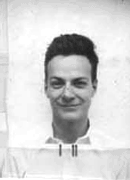Overachiever

The Overachiever (English: Overachiever by to achieve to German: "accomplish something, a goal achieved," sometimes Germanized "About Leister") refers to those services reach above their supposed potential - ie have more success than you would suspect it after performance tests like the SAT or an intelligence test . The term "overachiever" is usually used in the school environment.
An Overachiever is therefore the opposite of a minority Leister (underachievers) .
Famous overachiever
The Terman Study was one of the largest long-term studies in the history of psychology devoted to the study of giftedness . Terman approached California teachers asking them to name the most gifted and the second most gifted child in a class. Two boys named Luis Walter Alvarez and William Bradford Shockley were proposed to him. Both were not allowed to take part in the study because they were not classified as gifted. Shockley was awarded the Nobel Prize in Physics in 1956 and Alvarez in 1968.
Nobel laureate in physics Richard Feynman is also considered an overachiever . In high school, he scored 125 on an IQ test, a good but not exceptional result, as Feynman himself discovered when he checked his school reports at the Nobel Prize ceremony. However, in addition to mathematical skills, verbal skills were also tested. He declined an invitation to become a member of the highly gifted Mensa Association , which he had received after winning the Nobel Prize, because he had missed the minimum IQ of 130.
Success as a stigma
Overachievers are sometimes victimized in some cultures . In addition, it comes especially through envy of performance from classmates, who attribute the better performance not to talent, but to excessive ambition. Often over-achievers are wrongly assessed as highly talented . In fact, however, they do not achieve their success through a particularly high IQ. B. through special creativity, practical intelligence or emotional intelligence or through special diligence. A possible consequence of the victimization can be the isolation of the over-achiever within his social environment, since better school performance is placed in a competitive relationship with social competence and is thus perceived as not being prestigious.
Further use of the term
Analogous to people who achieve performance above their (assumed) potential, entire countries, corporate sectors, companies or stocks are referred to as overachievers with regard to their economic development .
Individual evidence
- ↑ Mitchell Leslie: The Vexing Legacy of Lewis Terman. In: The Stanford Magazine. July / August 2000, ISSN 0745-3981 , ( online ).
- ↑ James Gleick : Genius. The Life and Science of Richard Feynman. Pantheon Books, New York NY 1992, ISBN 0-679-40836-3 , p. 30.
- ↑ www.questia.com (English)